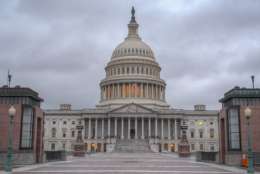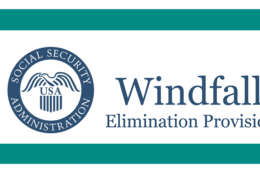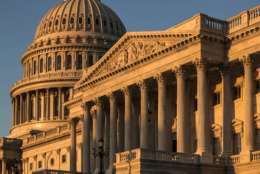Mike Causey
-
The size and purchasing power of your 2020 biweekly paycheck or monthly annuity payment will be decided in a couple of months. The good news about the January 2020 COLA for federal, military and Social Security retirees is that there almost certainly will be one.
August 12, 2019 -
The Windfall Elimination Provision (WEP) has been at the top of the legislative hit list for groups representing federal and public retirees for decades.
August 09, 2019 -
It's quiet, as August is a time when things are on hold until at least after Labor Day. But a lot awaits lawmakers when they return.
August 08, 2019 -
Slightly more than half of members of the Armed Forces are married and many of their spouses need to work. But getting a job can be difficult.
August 07, 2019 -
Feds more than most groups need to check on their tax status after retirement. That's why many move.
August 06, 2019 -
Who knows if there will be a pay raise... but one thing is for sure, health insurance premiums will be going up. The issue is, what will you pay them with?
August 05, 2019 -
The windfall elimination provision reduces the Social Security benefit for someone with less than 30 years of covered service if they qualify for an SSA benefit after as little as five years of covered service.
August 02, 2019 -
Thanks to a 1997 tax law that included the then-new Roth option, many people saving for retirement now have two choices.
August 01, 2019 -
Have you had your professional mid-life crisis yet? If not, this might be a good time to get it over with.
July 31, 2019 -
Despite tough talk from Congress and the White House, the federal employee benefits package has so-far remained untouched.
July 30, 2019 -
Should you stick with the TSP? Or would you be happier elsewhere? Financial expert and successful TSP investor Abraham Grungold shares his thoughts.
July 29, 2019 -
The Trump administration wants to share some of the D.C. wealth by moving jobs — but not necessarily the people in them — to other parts of the nation that could use the business.
July 26, 2019 -
The new budget deal between Congress and the White House includes a two-year ban on sequestration-related furloughs for federal workers.
July 25, 2019 -
Benefits expert Tammy Flanagan joins Your Turn today to answer questions about Social Security and retirement applicable to both federal and private sector workers.
July 24, 2019 -
Thousands of feds in some of FEHBP's best and most expensive health plans may be spared from a pending 40% tax on their favorite plans.
July 23, 2019














